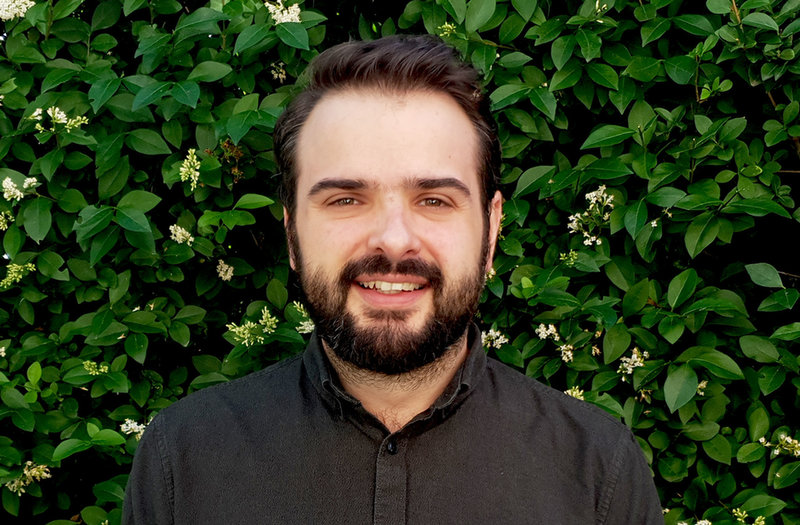Debate
Debate: can US pharma be taxed into behaving?
In the US, Democratic primary candidate Pete Buttigieg has proposed a punitive tax on drugmakers that refuse to renegotiate drug prices. Could taxation be an effective and fair way of bringing US medical costs down and punishing abusive pricing?
Allie Nawrat and Chris Lo explore the pros and cons.
Credit: Carina Teoh/ PFA
As Democratic candidates jockey for position in the campaign to win their party’s nomination in the 2020 US presidential race, healthcare has emerged as a central theme. With public fury over prescription drug costs building to a head and President Donald Trump’s sound and fury on the issue ultimately signifying next-to-nothing on pricing, the Democratic primary candidates are taking the opportunity to set out their stalls on healthcare. By doing so, each hopes to be able to give the President a bloody nose in the run-up to the election in November by criticising his perceived inaction on lowering drug costs and presenting a credible alternative vision.
The candidates’ healthcare proposals converge on many issues and part ways on others, and there are still plenty of unanswered questions around the costs of the more radical plans, and whether the more conservative pitches do enough to address the inequities of US healthcare.
Mayor of South Bend, Indiana and dark horse primary candidate Pete Buttigieg announced his own healthcare plans in October under the banner of ‘Affordable Medicine for All’. As well as common proposals, such as allowing the government to negotiate prices for Medicare and capping out-of-pocket costs for patients, Buttigieg has also proposed a new tax scheme to punish drugmakers that refuse to renegotiate the price of high-cost drugs. Under the proposal, companies that won’t renegotiate prices or leave negotiations without agreement will be hit with a 65% tax on gross sales of the drug in question, rising by 10% every quarter to a maximum of 95%.
The US pays between three times and twice as much as European Union (EU) countries for drugs according to data from the Commonwealth Fund.
there should be more taxation for drug price over-inflation.
Compared to a complete overhaul of the healthcare or patent systems, which would be an incredibly bureaucratic and time-consuming exercise, as well as require an entire paradigm shift of how Americans view healthcare provision, Buttigieg’s proposal is a much simpler, quick fix to punish the worst offenders and ensure companies do not continue to raise the prices of essential medicines for conditions like HIV and diabetes.
Research published in Health Affairs showed that the majority of US drug price hikes were on drugs already on the market, and were not caused by the commercialisation of new drugs – the prime example is insulin for type 1 diabetes, the price of which has tripled over the past decade with one 10ml vial currently costing almost $300.
As Buttigieg’s plan primarily focuses on companies raising prices of already existing expensive medicines, this plan could encourage companies to invest more in R&D. Research shows that despite pharma industry arguing they need to charge high prices because of the cost of R&D, only around an average of 17% of pharma profits are reinvested into further research.
There is little point developing almost curative treatments if they are then made too expensive to fund.
Therefore, the threat of losing up to 95% of their profits through taxation on a particular drug will incentivise the pharma industry to look for a new approach to make money. R&D of new, innovative products is somewhere they can justify higher prices of drugs, particularly when they can prove clinical and cost effectiveness. Buttigieg was clear that he did not want his plan to hinder innovations in the pharma industry.
Hopefully, the need for negotiation of drug prices, like drug companies already do in the EU, will lead to a fairer situation where genuinely revolutionary products are more widely available to patients in need. There is little point developing almost curative treatments if they are then made too expensive for insurers or Medicare to fund.
Ultimately, it is essential that pharma companies should not be able to rest on their laurels and continue to make big bucks by repeatedly increasing the prices of decades-old drugs, such as insulin, which are life-saving. Taxing these profits will scare them into finding a new money making approach, such as re-focusing on developing new drugs, which deserve higher price tags, even if the prices will need to be tempered based how effective they actually are. It is important to remember that negotiating drug prices has not stopped patients in the UK, for example, having access to personalised CAR-T therapies Yescarta and Kymriah through the publicly funded NHS.

punitive taxes miss the point and will turn price negotiations into fist fights
There are many good ideas being proposed by this year’s crop of Democratic candidates to reform a healthcare system that clearly isn’t working for many Americans. But, this isn’t one of them.
While the economic realities of Sanders and Warren’s ‘Medicare for All’ plan are still being debated – with Buttigieg arguing that it would involve a tax hike on middle-class Americans – they still provide some measure of certainty about the rules of the game under the new system, especially with a lengthy transition period.
Like many other countries in Europe and elsewhere, the US - under a public insurance system - would be able to negotiate drug prices using the leverage that comes with control over market access. The price-cutting benefits of a large public entity negotiating with pharma companies have been proven the world over, most recently in China, which in November announced that the prices of 70 blockbuster drugs had been reduced by an average of 61%, with the companies involved accepting the cut in exchange for inclusion on the medicines list of China’s massive state-run health insurance system. The promise of market access, rather than the threat of heavy taxation, prompted these cuts.
By focusing on slapping perceived offenders with impractical taxes, Buttigieg misses the point.
Buttigieg’s punitive tax measure provides none of this certainty, and the threat of implementing massive taxes that would essentially make it pointless to keep selling a drug in the US risks turning price negotiations into a form of corporate bear-baiting. While Americans are used to paying the world’s highest drug prices, they are also used to being the first to access the industry’s most innovative treatments – aggressive taxation is one of the best ways to reverse that trend.
The candidate’s health policy document notes that the first drugs to face negotiation will be “those with very high price tags and large price differences between what we pay and what other industrialised countries pay”, and that the federal government will be required to negotiate at least 25 drugs a year. This creates a huge amount of uncertainty in the industry about which drugs will be first on the chopping block, while the 25-renegotiations-a-year quota seems an arbitrary number rather than one based on evidence.
There’s no doubt that change is in the air for American healthcare, which is the most expensive in the world without the superior outcomes to match. But by focusing on slapping perceived offenders with impractical taxes, Buttigieg misses the point. Measures taken earlier in the process, such as patent reform, incentivising generic competition and bolstering the negotiating power of federal payers – all of which are endorsed by Buttigieg along with other candidates – have the power to reduce prices while maintaining a predictable marketplace in which the industry can operate. This confrontational tax plan isn’t needed, and smacks more of political point-scoring than sensible policymaking.
